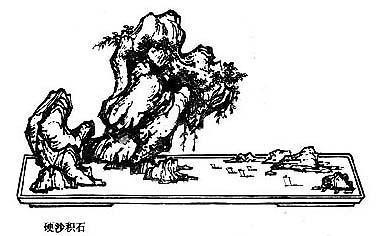Dao De Jing 
 – The Way and Its Power
– The Way and Its Power
The naturalist, individualist and politic doctrine of Lao-tse exhibited in 81 poetic and obscure texts. Tr. Waley (en), Lau (en), Julien (fr) and Wilhelm (de).
| 1 | 2 | 3 | 4 | 5 | 6 | 7 | 8 | 9 | 10 | 11 | 12 | 13 | 14 | 15 | 16 | 17 | 18 | 19 | 20 | 21 | 22 | 23 | 24 | 25 | 26 | 27 | ||
| 28 | 29 | 30 | 31 | 32 | 33 | 34 | 35 | 36 | 37 | 38 | 39 | 40 | 41 | 42 | 43 | 44 | 45 | 46 | 47 | 48 | 49 | 50 | 51 | 52 | 53 | 54 | ||
| 55 | 56 | 57 | 58 | 59 | 60 | 61 | 62 | 63 | 64 | 65 | 66 | 67 | 68 | 69 | 70 | 71 | 72 | 73 | 74 | 75 | 76 | 77 | 78 | 79 | 80 | 81 |
Daodejing II. 69.
Section De – Chapter LXIX
The strategists have the sayings: “When you doubt your ability to meet the enemy's attack, take the offensive yourself”' and “If you doubt your ability to advance an inch, then retreat a foot”.
This latter is what we call to march without moving,
To roll the sleeve, but present no bare arm,
The hand that seems to hold, yet had no weapon in it,
A host that can confront, yet presents no battle-front.
Now the greatest of all calamities is to attack and find no enemy.
I can have no enemy only at the price of losing my treasure.
Therefore when armies are raised and issues joined it is he who does not delight in war that wins.
Waley 69
兵书上说:“我不敢主动挑起战端, 而只采取守势; 我不敢冒进半寸, 宁可后退一尺。” 这就是说要以无阵之阵抗击, 以无臂之臂夺取, 以无兵之兵战斗, 以无敌之心对敌。
祸莫大于轻敌逞强, 轻敌逞强就要丧失三宝。所以俩兵相对, 仁慈者胜。
白话翻译
The strategists have a saying,
I dare not play the host but play the guest,
I dare not advance an inch but retreat a foot instead.
This is known as marching forward when there is no road,
Rolling up one's sleeves when there is no arm,
Dragging one's adversary by force when there is no adversary,
And taking up arms when there are no arms.
There is no disaster greater than taking on an enemy too easily.
So doing nearly cost me my treasure.
Thus of two sides raising arms against each other,
It is the one that is sorrow-stricken that wins.
Lau 69
Voici ce que disait un ancien guerrier :
Je n'ose donner le signal, j'aime mieux le recevoir.
Je n'ose avancer d'un pouce, j'aime mieux reculer d'un pied.
C'est ce qui s'appelle n'avoir pas de rang à suivre, de bras à étendre, d'ennemis à poursuivre, ni d'arme à saisir.
Il n'y a pas de plus grand malheur que de résister à la légère.
Résister à la légère, c'est presque perdre notre trésor.
Aussi, lorsque deux armées combattent à armes égales, c'est l'homme le plus compatissant qui remporte la victoire.
Julien 69
Bei den Soldaten gibt es un Wort:
Ich wage nicht, den Herrn zu machen,
sondern mache lieber den Gast.
Ich wage nicht, einen Zoll vorzurücken,
sondern ziehe mich lieber einen Fuß zurück.
Das heißt gehen ohne Beine,
fechten ohne Arme,
werfen, ohne anzugreifen,
halten, ohne die Waffen zu gebrauchen.
Es gibt kein größeres Unglück,
als den Feind zu unterschätzen.
Wenn ich den Feind unterschätze,
stehe ich in Gefahr, meine Schätze zu verlieren.
Wo zwei Armeen kämpfend aufeinanderstoßen,
da siegt der, der es schweren Herzens tut.
Wilhelm 69

The Way and Its Power – Dao De Jing II. 69. – Chinese off/on – Français/English
Alias Daode Jing, Dao De Jing, Tao Te Ching, Tao Teh Ching, le Tao-tö-king, Lao-Tzu Te-Tao Ching, the Laozi, Lao Zi, the Lao Tze, le Lao-tseu, The Book of the Way and its Virtue, the Way and its Power.
The Book of Odes, The Analects, Great Learning, Doctrine of the Mean, Three-characters book, The Book of Changes, The Way and its Power, 300 Tang Poems, The Art of War, Thirty-Six Strategies
Welcome, help, notes, introduction, table.
Index – Contact – Top
